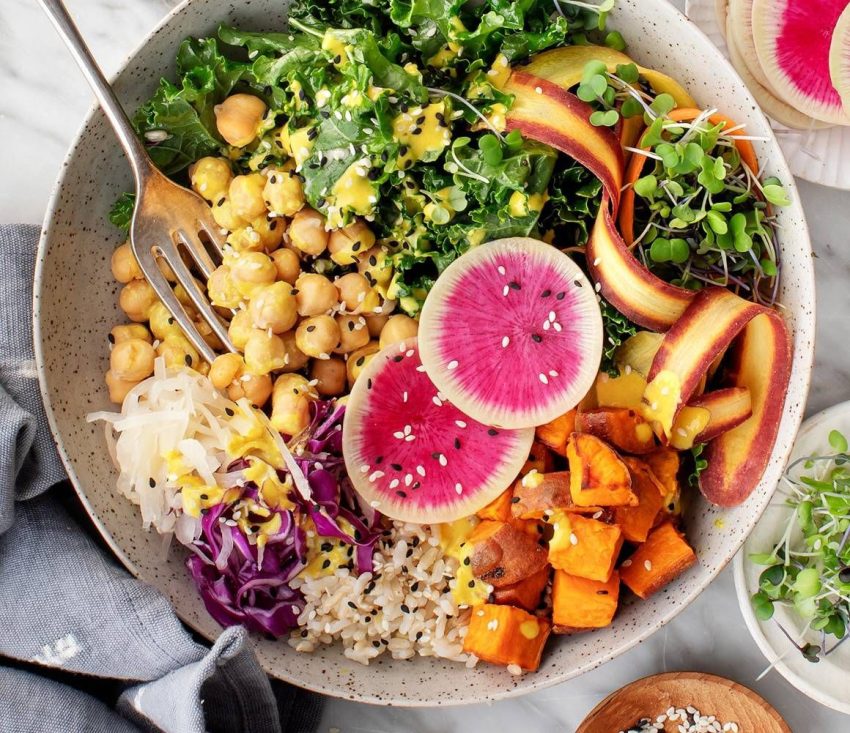In recent years, plant-based and vegan diets have gained tremendous popularity. People are increasingly adopting these dietary choices due to various reasons, including health, ethical, and environmental concerns. Plant-based and vegan cooking have emerged as exciting culinary trends, offering a plethora of delicious and nutritious recipes that are completely devoid of animal products. In this article, we will explore the world of plant-based and vegan cooking and highlight the benefits and challenges associated with these lifestyles.
The Basics of Plant-Based and Vegan Diets
Before delving into the realm of plant-based and vegan cooking, it is important to understand the difference between the two terms. Plant-based diets primarily consist of foods derived from plants, such as fruits, vegetables, whole grains, legumes, nuts, and seeds. On the other hand, vegan diets exclude all animal-derived products, including meat, poultry, fish, dairy, eggs, and honey.
Despite the differences, both plant-based and vegan diets share a common emphasis on incorporating whole, unprocessed foods into meals. They promote the consumption of nutrient-dense ingredients while avoiding additives, preservatives, and excessive amounts of sugar, salt, and unhealthy fats.
The Health Benefits
Plant-based and vegan diets have been praised for their numerous health benefits. By focusing on a variety of fruits, vegetables, and whole grains, these diets provide an abundance of vitamins, minerals, fiber, and antioxidants. Such a nutrient-rich intake has been linked to a reduced risk of chronic diseases, including heart disease, obesity, type 2 diabetes, and certain types of cancer.
Moreover, plant-based and vegan diets typically have lower cholesterol and saturated fat content compared to diets that include animal products. This can contribute to improved cardiovascular health and reduced blood pressure levels. Additionally, these diets are often associated with healthier body weight management and a lower body mass index (BMI).
The Environmental Impact
One of the main reasons people embrace plant-based and vegan diets is their positive impact on the environment. Animal agriculture is a significant contributor to greenhouse gas emissions and deforestation, making it a major driver of climate change. By choosing plant-based alternatives, individuals can significantly reduce their carbon footprint and contribute to a more sustainable planet.
Furthermore, crop production for animal feed requires vast amounts of land, water, and energy resources. Shifting to a plant-based or vegan diet can help conserve natural resources, protect biodiversity, and alleviate global water scarcity. The environmental benefits of these diets are substantial and play a crucial role in preserving the planet for future generations.
Cooking Creatively
Plant-based and vegan cooking is far from boring or repetitive. In fact, it offers a world of exciting and diverse flavors, ingredients, and techniques. Due to the exclusion of animal products, plant-based and vegan cooks often experiment with alternative ingredients and cooking methods to achieve delicious results.
For instance, cashew nuts are a popular substitution for dairy products, providing a creamy texture and rich taste in recipes like vegan cheese sauces or desserts. Additionally, tofu and tempeh, made from soybeans, offer a versatile and protein-packed base for many plant-based dishes, such as stir-fries and burgers.
Furthermore, plant-based chefs often rely on a wide range of herbs, spices, and umami-rich ingredients like mushrooms and nutritional yeast to enhance the flavors of their dishes. From fragrant curries to hearty stews, there is no shortage of mouthwatering plant-based recipes to explore.
Overcoming Challenges
While plant-based and vegan cooking has its many advantages, it also presents some challenges. One common concern is the adequate intake of certain nutrients that are typically found in animal products, such as vitamin B12, iron, zinc, and omega-3 fatty acids. However, with careful planning and varied food choices, it is possible to obtain all essential nutrients on a plant-based or vegan diet.
Additionally, people who are new to plant-based or vegan cooking may find it challenging to adjust their cooking techniques and adapt recipes to suit their dietary choices. However, with the abundance of online resources, cookbooks, and communities dedicated to plant-based and vegan cooking, individuals can easily find support, inspiration, and guidance to overcome these obstacles.
A Lifestyle for Everyone
Plant-based and vegan cooking is not limited to those who follow strict plant-based or vegan diets. It is a culinary world that welcomes everyone looking to incorporate more plant-based meals into their lifestyle. By adopting these cooking practices, individuals can promote their own well-being, contribute to environmental sustainability, and embark on a delicious and ethical journey of exploring the incredible flavors of plant-based and vegan cuisine.
In conclusion, plant-based and vegan cooking has become a fast-growing trend, bringing health, environmental, and ethical benefits to the forefront. With an array of delicious recipes, abundant nutrients, and the potential for culinary creativity, these diets are here to stay. So why not give plant-based and vegan cooking a try and savor the flavors of a greener, more compassionate lifestyle?

